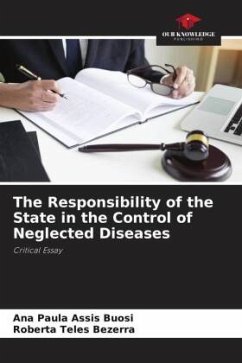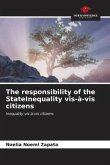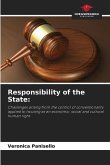This paper analysed the possibility of State liability due to its inefficiency in combating and controlling neglected diseases. According to the World Health Organisation Report (2012), these diseases are caused by infectious or parasitic agents related to aspects of extreme poverty, representing obstacles to the socio-economic development of emerging countries. Based on qualitative bibliographical research, the work examined the non-contractual liability of the state in its omissive modality, anonymous guilt, presenting the damage resulting from the inefficiency of measures to combat and control these diseases. Research was carried out into how the right to health developed after the advent of the 1988 Constitution. The panorama of neglected diseases in Brazil was presented. Finally, the possibility of mitigating the liability of the state entity as a result of citizen behaviour that contributes to the manifestation of these diseases was investigated.
Bitte wählen Sie Ihr Anliegen aus.
Rechnungen
Retourenschein anfordern
Bestellstatus
Storno








